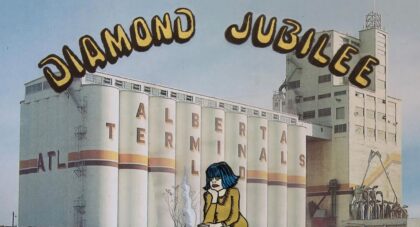When you walk away from a band that Griel Marcus once dubbed "the best rock and roll band in America," people can get a bit antsy when you go almost completely off the radar for five years afterward. Yet, that's exactly what Corin Tucker did when Sleater-Kinney took a still-ongoing break in 2006. Her first solo record, 1,000 Years, came out earlier this fall. AD spoke on the phone with Tucker about how much of a break she actually took from music, working with new musicians and instruments, being a parent in negotiating a record contract and how it feels to be big in Japan.
Aquarium Drunkard: It's been about five years between this album and the final Sleater-Kinney album. How active have you been, musically, in that interim?
Corin Tucker: Not very. I played a few benefit shows that were really the only things I did. I've mostly just been enjoying taking care of my family and being at home. I have a part-time job as well, so I stay busy.
AD: Was it mostly a case of just not playing out, or did you actually put the guitar down and not play for awhile?
CT: I really didn't play guitar for awhile, I'd say. Being pregnant with my daughter, I didn't play guitar at all. I didn't feel well. For like a year. [laughs] Just lying on the couch and doing what I had to do.
AD: Was that weird coming back to it? I'd imagine that's the first time you hadn't really been playing guitar since - when? - the first time you ever picked it up?
CT: Yeah. I was definitely rusty and would get frustrated. I think I always do best when I just play for a little while when I want to, you know, and just do it in short bursts. I really enjoy playing guitar and I think I'll always return to it.
AD: What about coming back to songwriting after that? Is there something different there? I've seen you say in other interviews that, lyrically, things have changed with different experiences over the past five years. What are the biggest differences there?
CT: Well, the themes might be different because I'm in a different place in my life, but I feel I write with the same process. I basically try and write in these little short bursts where I pick up the guitar, play for awhile and something will come to me and I'll try to record it quickly.
In that respect, the whole process of writing a song, to me, is pretty much the same, but I guess what I was trying to accomplish with this record was a bit different. I wanted to take those ideas I had, take my time with them and really complete a whole story with each song. I think "Thrift Store Coats" is a good example of that - of having this experience of a late fall day and hearing about two of my friends having lost their jobs. I had this flash, this moment, but I wanted to turn it into this whole story that painted a picture for people of what Portland, Oregon was looking like during the recession.
Continue Reading After The Jump....
Only the good shit. Aquarium Drunkard is powered by its patrons. Keep the servers humming and help us continue doing it by pledging your support.
To continue reading, become a member or log in.


